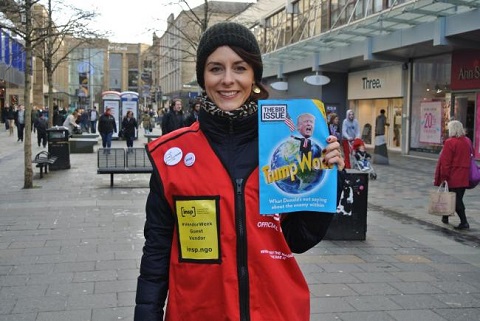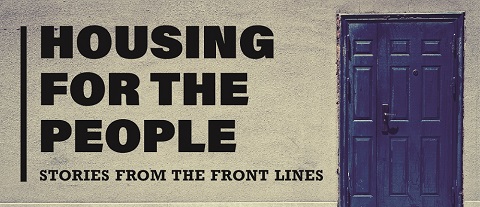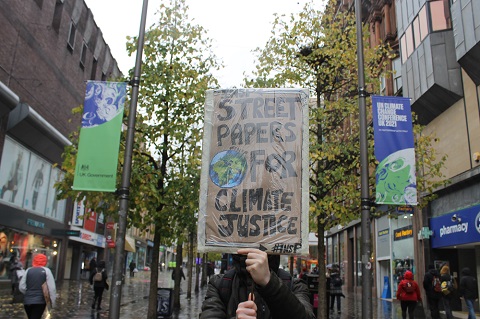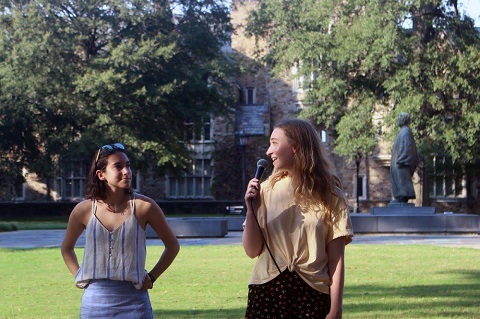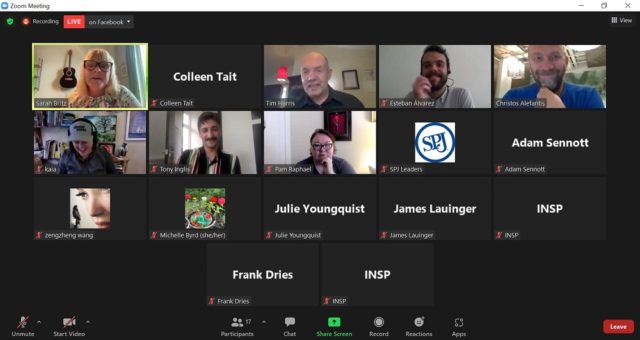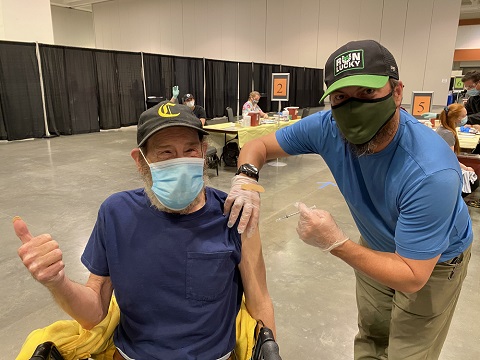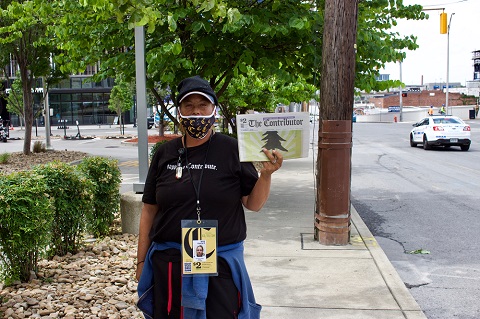The INSP Talks have become a regular feature of the Global Street Paper Summit. The #INSP2018 edition was held on the evening of the first full day of the conference, at The Lighthouse – Scotland’s Centre for Design and Architecture – based in Glasgow city centre.
This year, the talks, which follow the TEDx format of 10 to 15 minute presentations, were all based around the theme of social enterprise. Street papers have been described as the “original social enterprise”, but many street paper organisations have significant purpose driven businesses which do a social good alongside the publications themselves.
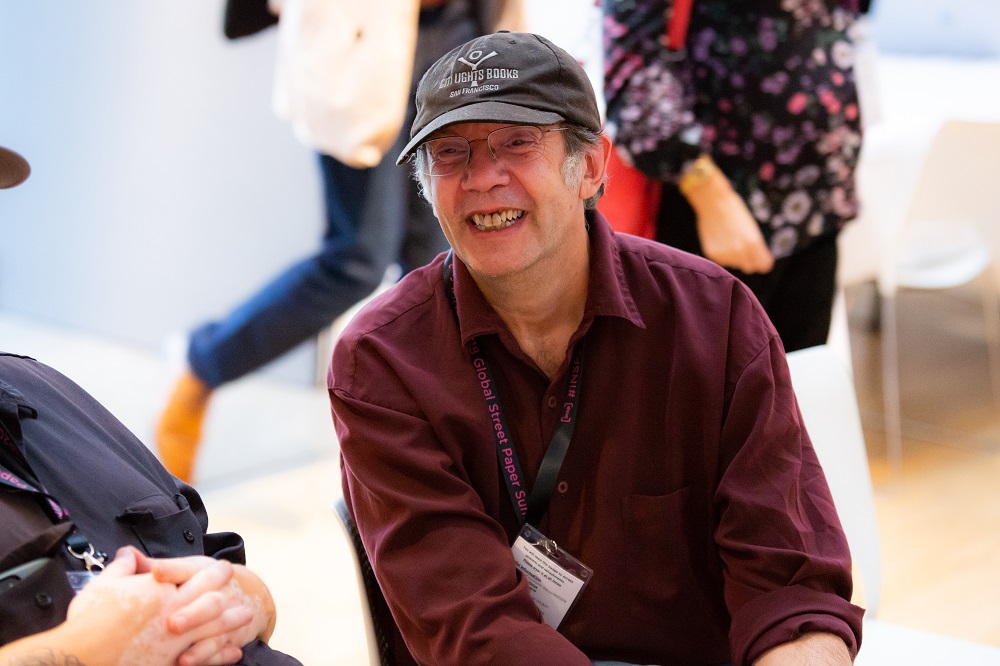
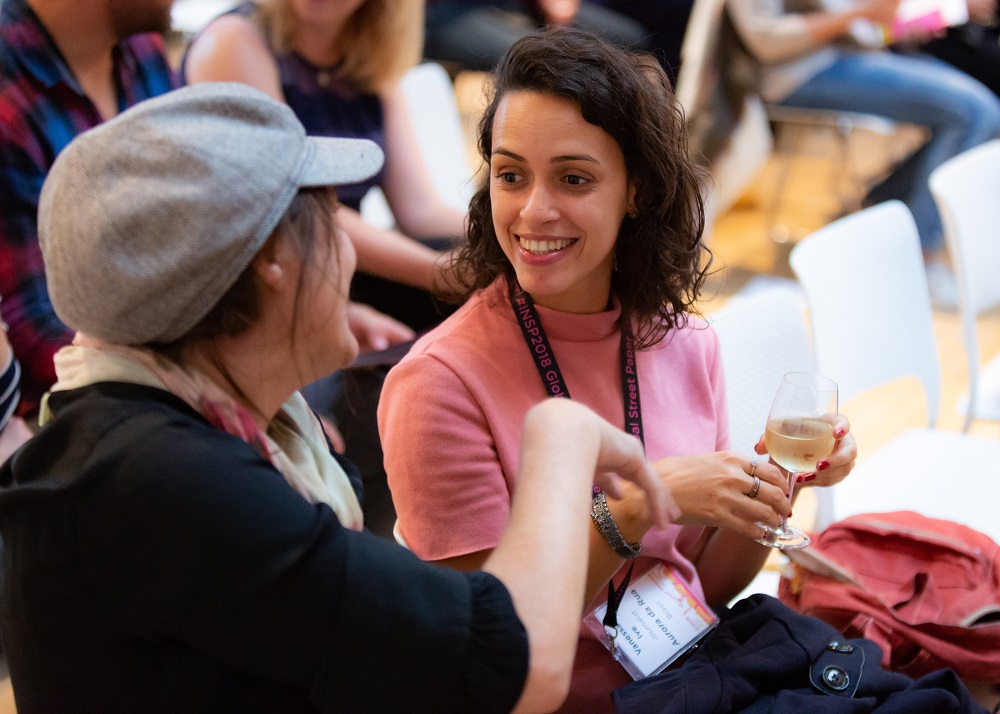
It was an apt focus for the event. Scotland is a leading light in the social enterprise world, and that has been acknowledged as the Social Enterprise World Forum returns to the country in September. INSP has been putting the spotlight on some of those social enterprises at the forefront of the movement in Scotland with a series of interviews with their founders and directors. Many of those organisations – ethical letting agency Homes for Good, craft beer and clean water fanatics Brewgooder and, fighting against period poverty, Hey Girls – were mentioned by one of the night’s speakers, Will Tyler-Greig, head of social enterprise, innovation and investment at the Scottish Government.
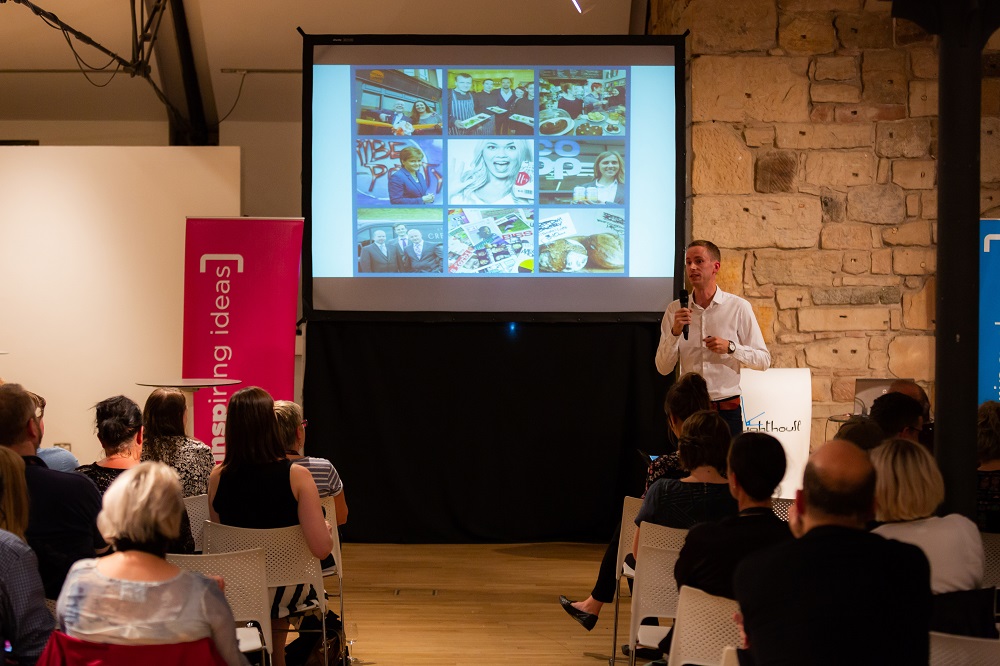
There are around 5,600 social enterprises in Scotland, or one for every 1,000 people, and this number has increased by ten per cent in the last three years. Tyler-Greig explained the strength of the sector in Scotland: 70 per cent are led by, and accountable to, the people in a particular community, most have women at their head, and they contribute £2billion gross value added to the economy every year.
Tyler-Greig was preceded by individuals representing street papers across the network, and shared the innovative ways they are using the social enterprise model to improve the lives of homeless and disadvantaged people.
Shedia editor-in-chief, Chris Alefantis, told the audience about the Greek street paper’s long awaited and much mooted upcycling project, Shediart, which will finally launch in November. The social enterprise trains Shedia vendors, many of whom are over 50, to repurpose old magazines and create products of high quality and aesthetic value, including lampshades, bookmarks, plant pots, handbags and much more, ranging in price from two to 200 euros.
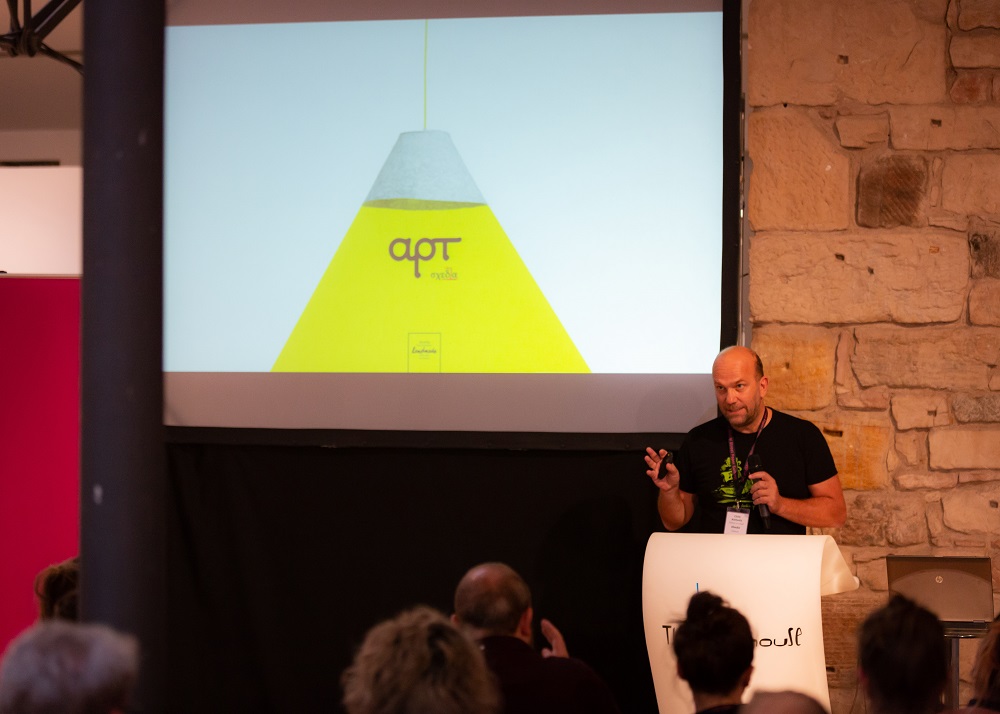
Upcycling unsold editions makes for a much more efficient use of time, money and materials. It is estimated that recycling 5,000 Shedia magazines produces just 50 euros, while upcycling the same amount can lead to hundreds of thousands of work hours and products. For example, 5,000 magazines will go to the creation of 3,333 upcycled coasters through 13,333 work hours.
Alefantis said: “Shediart not only opens the eyes of people to a whole new world of ways to reduce your environmental footprint, but also ensures socially excluded and isolated people are in employment.
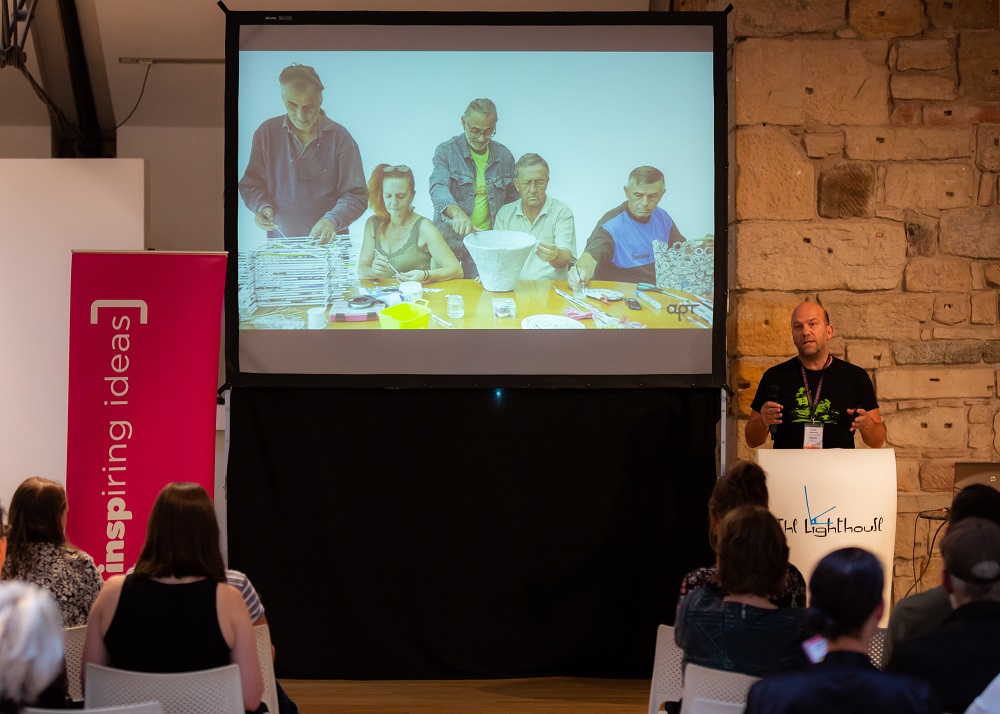
“But we don’t want it just to be about this social aspect; we want the products to be of a quality that makes people actually desire them, and so sustaining the business.”
He added that this was a model he hoped would be replicated: “The concept of Shediart is unique – it could be we are the only print media outlet using unsold copies in this way. And it is part of our strategic planning to spread this throughout the world.”
The concept has taken four years from its inception to become a reality, and Alefantis explained that Shedia expects to have 17 employees involved in the social enterprise upon its launch, and to have a first year annual turnover of half a million euros.
Representatives of =Oslo spoke about their social enterprise coffee bar, =Kaffe, which has been featured before on INSP’s website, and which was the subject of a TV documentary in Norway.
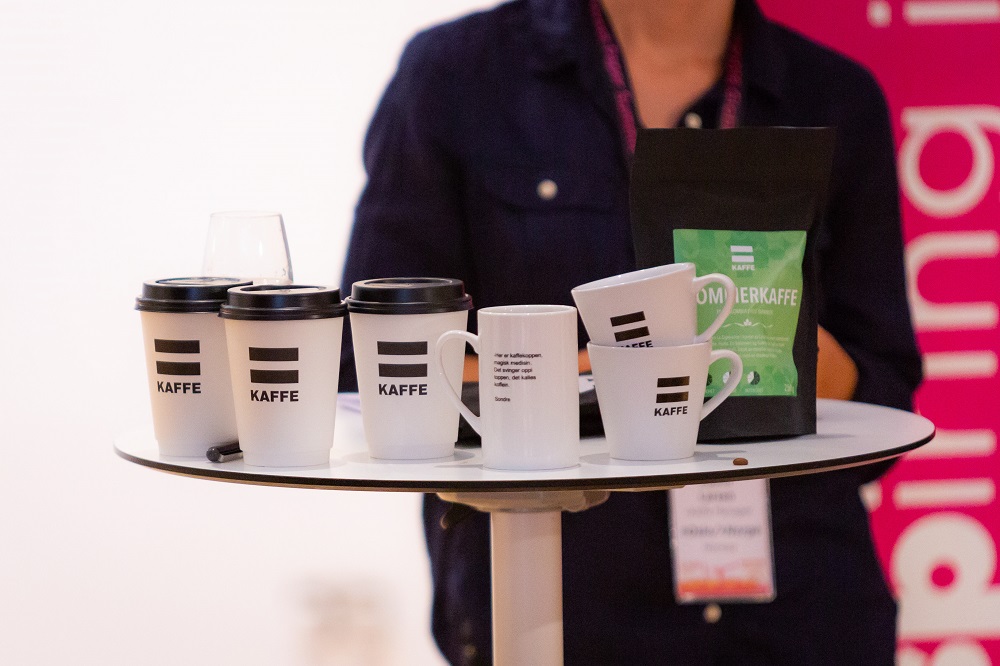
=Kaffe trains disadvantaged, homeless, and drug addicted people to work in one of Oslo’s hottest new coffee spots, which is no mean feat in a city with such a high concentration of cafes (150 in central Oslo), and a country which is second only to Finland in its coffee consumption.
The café’s manager Katrin Larsen, social worker Even Skyrud and =Oslo CEO Camilla Svingen, explained how they wanted those working behind the bar to have to have something to talk about other than their illness, and for =Kaffe to be a place where “people in the street meet those on the street”.
In its first year, between June 2017 and 2018, =Kaffe has sold more than 46,000 cups of coffee, tea and hot chocolate, while employing 12 baristas (all working for four hours at a time, alongside a social worker) all of whom have a history of, and most of whom still struggle with, drug addiction and social exclusion.
Skyrud had some advice for audience members who have dreams of starting up a similar endeavour.
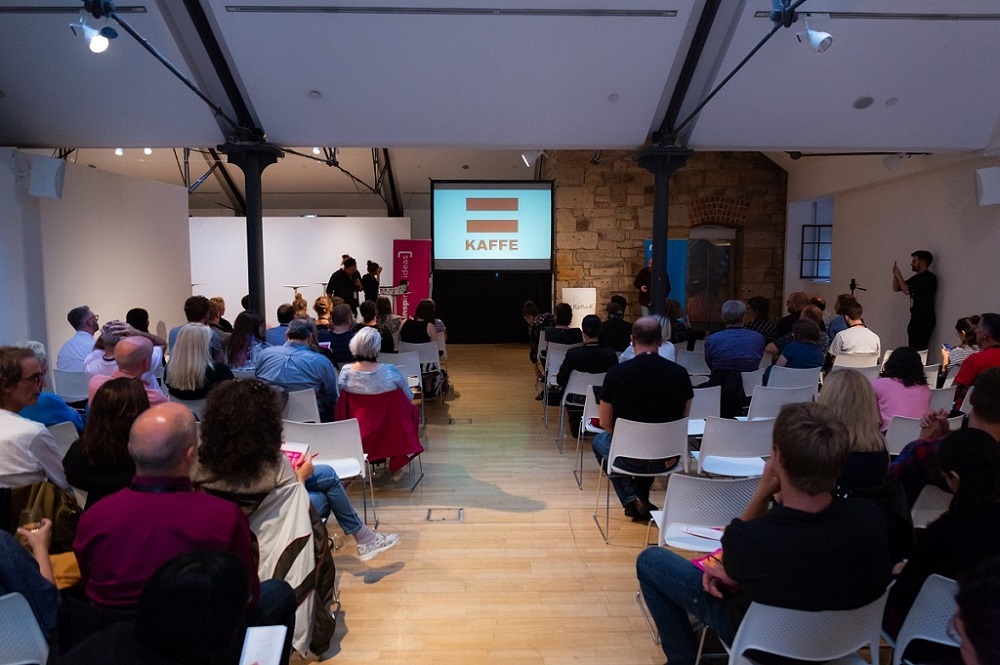
He said: “Don’t think of this as a social project; you should think as you would when building any other business. It can’t just be some pretend thing you are doing to help people – it has to be treated like a real job and a real coffee bar.
“Why shouldn’t it be as good as any of the other places selling coffee in the area, just because you are doing something good. People like to know extraordinary people, so tell their stories.”
Street papers are one of the oldest social enterprises, and Lauren Dougall and Megan O’Neill, executive director and creative director, respectively, of Nashville street paper The Contributor, realised this when overhauling the design of their publication in order to “bring it up to speed with the social enterprise environment in the US”.
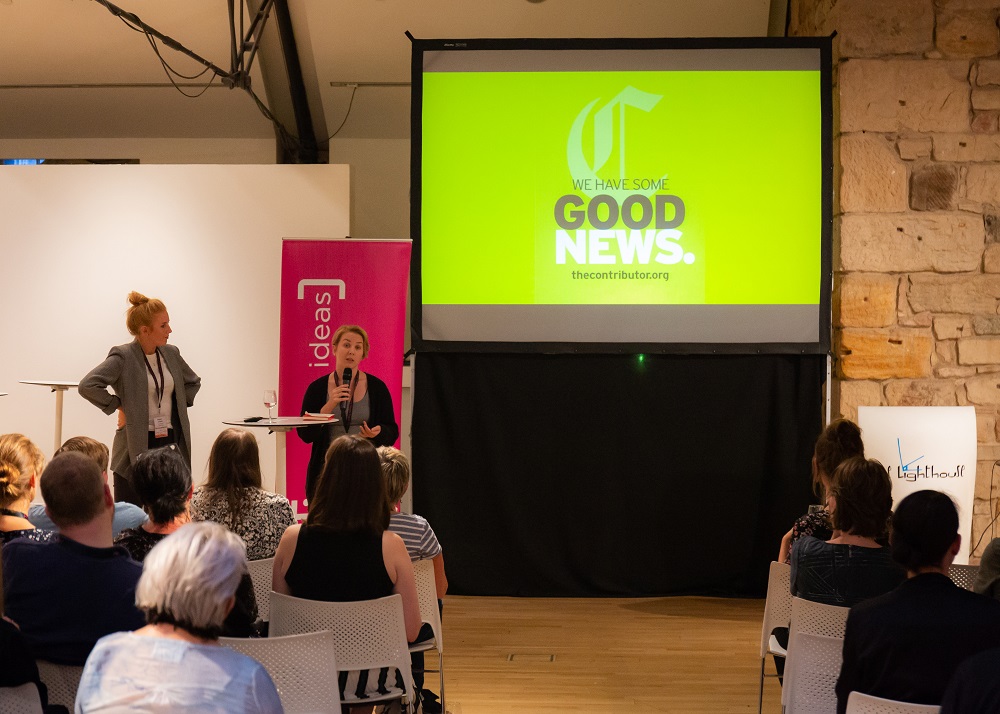
The Contributor went from old-fashioned newsprint – “the value was in the transaction between customers and vendors, not the product,” said Dougall – to a sleek, stylised magazine, more in keeping with modern expectations of a high quality publication.
Dougall said: “The organisation is a living, breathing thing that needs different kinds of care and attention that what it did in the past. Being a sustainable social enterprise means producing something people want to buy.”
After a sustained marketing campaign, focus groups and surveys, and much discussion, the new-look publication was launched in April 2018 with a price increase to five dollars.
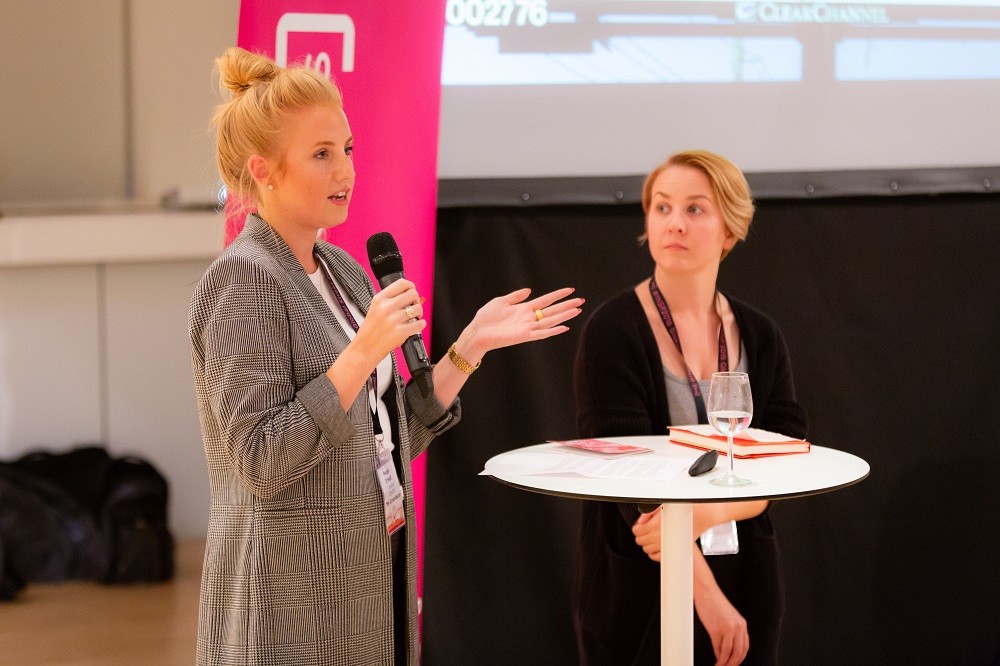
O’Neill said: “Consumers are incredibly visual beings, so we wanted to give them something that looked good and people would be excited to read.
“Change is important. You can’t sit on success for too long or new trends, in philanthropy, business and media, pass you by.”
Finally, John Monatgue, managing director of The Big Issue Group UK, spoke to delegates about the investment wing of The Big Issue – Big Issue Invest – the UK’s first social bank.
He explained how Big Issue Invest uses funds to buy in to other social businesses and help them get a leg up in the sector, with single investments ranging from £50,000 to £3million, in nearly 200 social enterprises, totalling at around £30million.
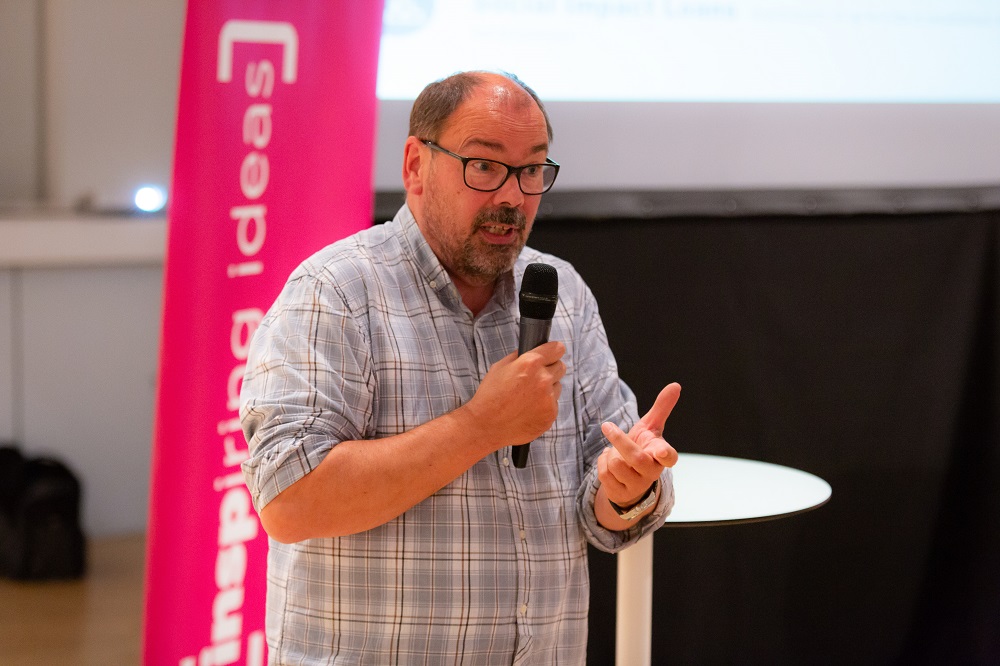
Some of the social businesses benefitting from this are now>press>play, which uses alternative means, such as audio, visual and VR, to create immersive learning environments for young people, and Cornerstone, a health and social care provider.
Montague explained that for the businesses being given a cash injection, and those giving it out, investment isn’t a bad thing, saying: “Social doesn’t mean cheap.”
Below, watch the live stream of the INSP Talks from The Lighthouse in Glasgow.









